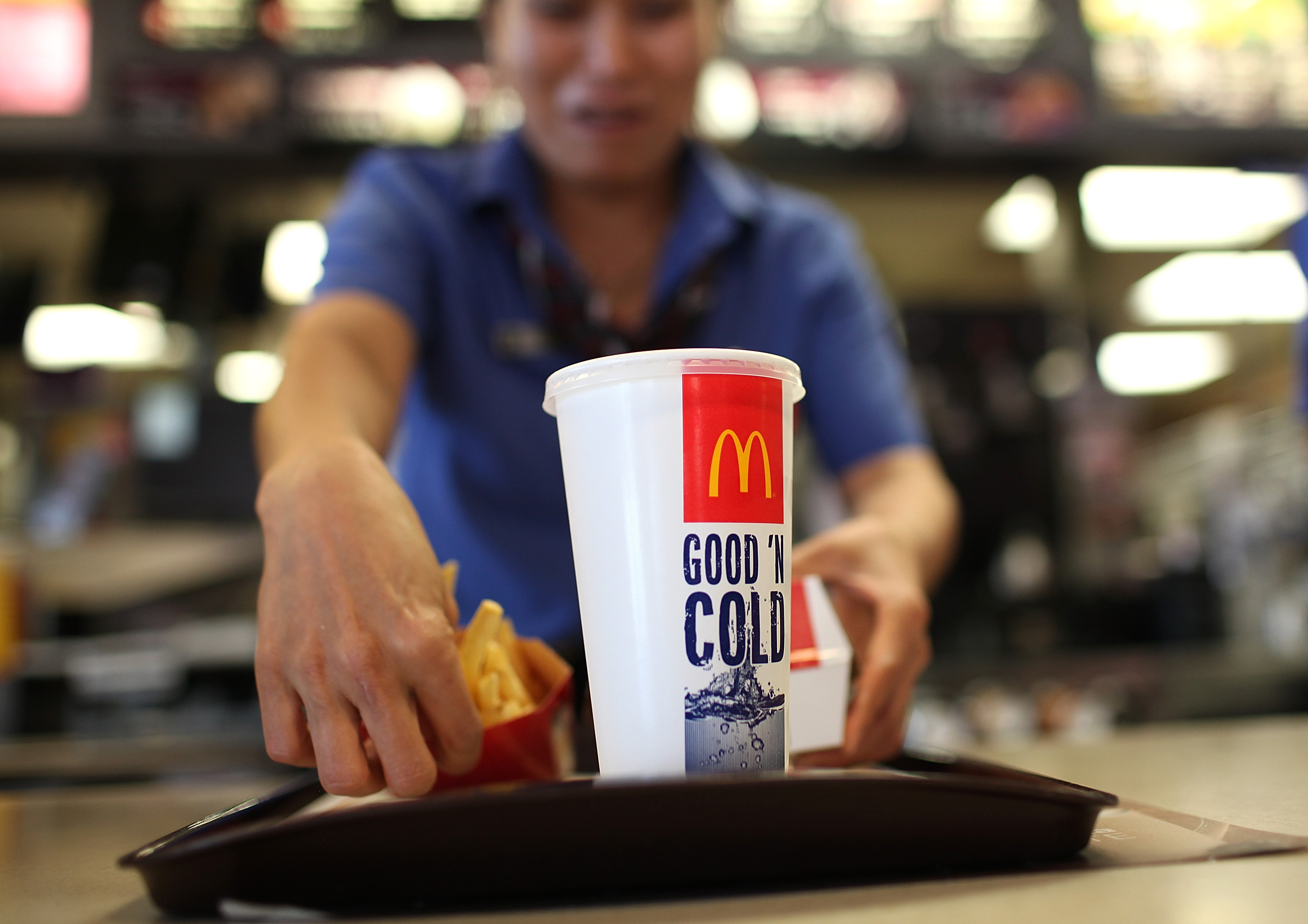The truth behind the McDonald's pay hike
Everything you need to know, in four paragraphs

A free daily email with the biggest news stories of the day – and the best features from TheWeek.com
You are now subscribed
Your newsletter sign-up was successful
It's time we gave our workers a raise, said McDonald's CEO Steven Easterbrook in the Chicago Tribune. Any company that hopes to "recruit and retain talented people" knows that wages matter. That's why more than 90,000 McDonald's employees at our 1,500 corporate-owned stores will soon receive a raise of $1 over the local minimum wage; they will also be eligible for paid vacation time. I know that critics will say these raises don't "go far enough." But it's "what we can do right now," and I hope it will "have a tremendous and positive impact — both within our industry and in communities across the country."
Give me a break, said Barry Ritholtz at Bloomberg View. The McRaise may initially sound generous, but "as always, the devil is in the details." It will only affect workers at stores the company runs itself, leaving employees at the chain's 13,000 franchises — almost 90 percent of the total workforce — out of luck. As with Walmart, which recently grabbed headlines with a wage hike that turned out to be moot for more than two-thirds of its employees, the Golden Arches' motives here seem less than sincere. Still, we're beginning to see a trend, said Annie Lowrey at New York. "Big company after big company," including T.J. Maxx, the Gap, and Ikea, have all hiked wages in the past few months. The problem is, all of the raises "have been concentrated in low-wage sectors" and haven't amounted to much more than "a few more quarters and nickels per hour," blunting the effect both on workers' lives and on the overall economy.
The McDonald's "pay increase won't, in itself, be a very big deal," said Paul Krugman at The New York Times, but it could be "a harbinger of an important change." Companies like to blame the lack of "good jobs" on global competition, technological advances, and simple supply and demand in the labor market. But "the great majority of American workers are employed in service industries that aren't exposed to international trade," and evidence that technology is pushing down wages is scant. Instead, we know that "decently paid workers tend to do a better job, not to mention are less likely to quit and require replacement, than workers paid the absolute minimum an employer can get away with." The move by McDonald's might just convince other firms that "it's not that hard to give American workers a raise, after all."
The Week
Escape your echo chamber. Get the facts behind the news, plus analysis from multiple perspectives.

Sign up for The Week's Free Newsletters
From our morning news briefing to a weekly Good News Newsletter, get the best of The Week delivered directly to your inbox.
From our morning news briefing to a weekly Good News Newsletter, get the best of The Week delivered directly to your inbox.
Low-wage workers are the real heroes here, said Harold Meyerson at The Washington Post. They've done an incredible job of rallying public support and pressuring employers to acknowledge and remedy their abysmal pay. Blocked from forming unions, they've created a kind of "collective bargaining by other means" and deployed it to impressive effect. But for all they have achieved in recent months, there are limits to what their activism can do. States and cities may raise their minimum wage, and low-wage companies might bump up their pay. But until all workers have "the legal ability to form unions," they won't "significantly alter the power imbalance hardwired into our current economy."
A free daily email with the biggest news stories of the day – and the best features from TheWeek.com
-
 The ‘ravenous’ demand for Cornish minerals
The ‘ravenous’ demand for Cornish mineralsUnder the Radar Growing need for critical minerals to power tech has intensified ‘appetite’ for lithium, which could be a ‘huge boon’ for local economy
-
 Why are election experts taking Trump’s midterm threats seriously?
Why are election experts taking Trump’s midterm threats seriously?IN THE SPOTLIGHT As the president muses about polling place deployments and a centralized electoral system aimed at one-party control, lawmakers are taking this administration at its word
-
 ‘Restaurateurs have become millionaires’
‘Restaurateurs have become millionaires’Instant Opinion Opinion, comment and editorials of the day
-
 The pros and cons of noncompete agreements
The pros and cons of noncompete agreementsThe Explainer The FTC wants to ban companies from binding their employees with noncompete agreements. Who would this benefit, and who would it hurt?
-
 What experts are saying about the economy's surprise contraction
What experts are saying about the economy's surprise contractionThe Explainer The sharpest opinions on the debate from around the web
-
 The death of cities was greatly exaggerated
The death of cities was greatly exaggeratedThe Explainer Why the pandemic predictions about urban flight were wrong
-
 The housing crisis is here
The housing crisis is hereThe Explainer As the pandemic takes its toll, renters face eviction even as buyers are bidding higher
-
 How to be an ally to marginalized coworkers
How to be an ally to marginalized coworkersThe Explainer Show up for your colleagues by showing that you see them and their struggles
-
 What the stock market knows
What the stock market knowsThe Explainer Publicly traded companies are going to wallop small businesses
-
 Can the government save small businesses?
Can the government save small businesses?The Explainer Many are fighting for a fair share of the coronavirus rescue package
-
 How the oil crash could turn into a much bigger economic shock
How the oil crash could turn into a much bigger economic shockThe Explainer This could be a huge problem for the entire economy